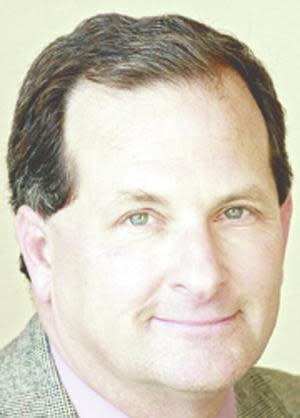Rabbi Gerson: Jews contemplate the story of Abraham and Isaac to start the 'New Year'
- Oops!Something went wrong.Please try again later.
- Oops!Something went wrong.Please try again later.
On Sept. 15, Jewish people will usher in our holiday of Rosh Hashanah, the New Year.
Contrasting with the secular Jan. 1 New Year Holiday, which we Jews also enjoy, Rosh Hashanah is completely solemn. It's our second holiest day, next to Yom Kippur, which comes 10 days later. It is a time of prayer and deep introspection, when we are evaluated by God and judged for the coming year. And for the Jewish clergy like myself, we prepare sermons that will be preached to a full congregation.
On Rosh Hashanah, in the morning in the synagogue, our reading from the Torah is one of the great portions in all of our Scripture. It is Genesis 22, relating God's great test of faith to Abraham to sacrifice his son Isaac atop the mountain of Jerusalem.

The portion begins: "It came to pass that God tested Abraham and said to Abraham ... take now your son Isaac whom you love, and go to Mount Moriah, and offer him there for a burnt offering." (Genesis 22:1-2)
And then, when Abraham agrees to follow God's command, God sends a ram in Isaac's place: "And Abraham took the ram and offered it up for a burnt offering in place of his son." (Genesis 22:13)
The ram has generated much commentary in Jewish literature to produce further inspiration. In the Midrash, our greatest Jewish Rabbinic commentary on Scripture, the question is asked: What became of the parts of the burnt ram? The Rabbis answer that two parts had an important role in later Jewish history. They tell us that the sinews, the tendons of the ram, became the strings of King David's harp; and the skin of the ram was used for the garment worn by the great early prophet Elijah.
The strings of David's harp: This is the music of faith. Out of the church or synagogue or mosque, hymns and songs uplift our spirits tremendously, including in difficult times.
I recall recently, during the dark time of COVID, the streaming of religious services with beautiful melodies was a soothing balm for many who needed comfort. Yes, the strings of David's harp.
And secondly, the garment of Elijah the prophet. This is prophecy. The prophets of Scripture in the line of Elijah − Isaiah, Jeremiah, Hosea, Micah and others − they form the social action part of faith, which demands justice in this world of ours. Martin Luther King Jr. quoted the prophets often. It was a backbone of the Civil Rights movement in our country. And prophecy has inspired other causes as well.
In a few weeks, we Jews will hear the reading again. And in that spirit, may I wish all my readers the very best in the New Year.
This article originally appeared on Augusta Chronicle: Rosh Hashanah is the Jewish New Year in September
